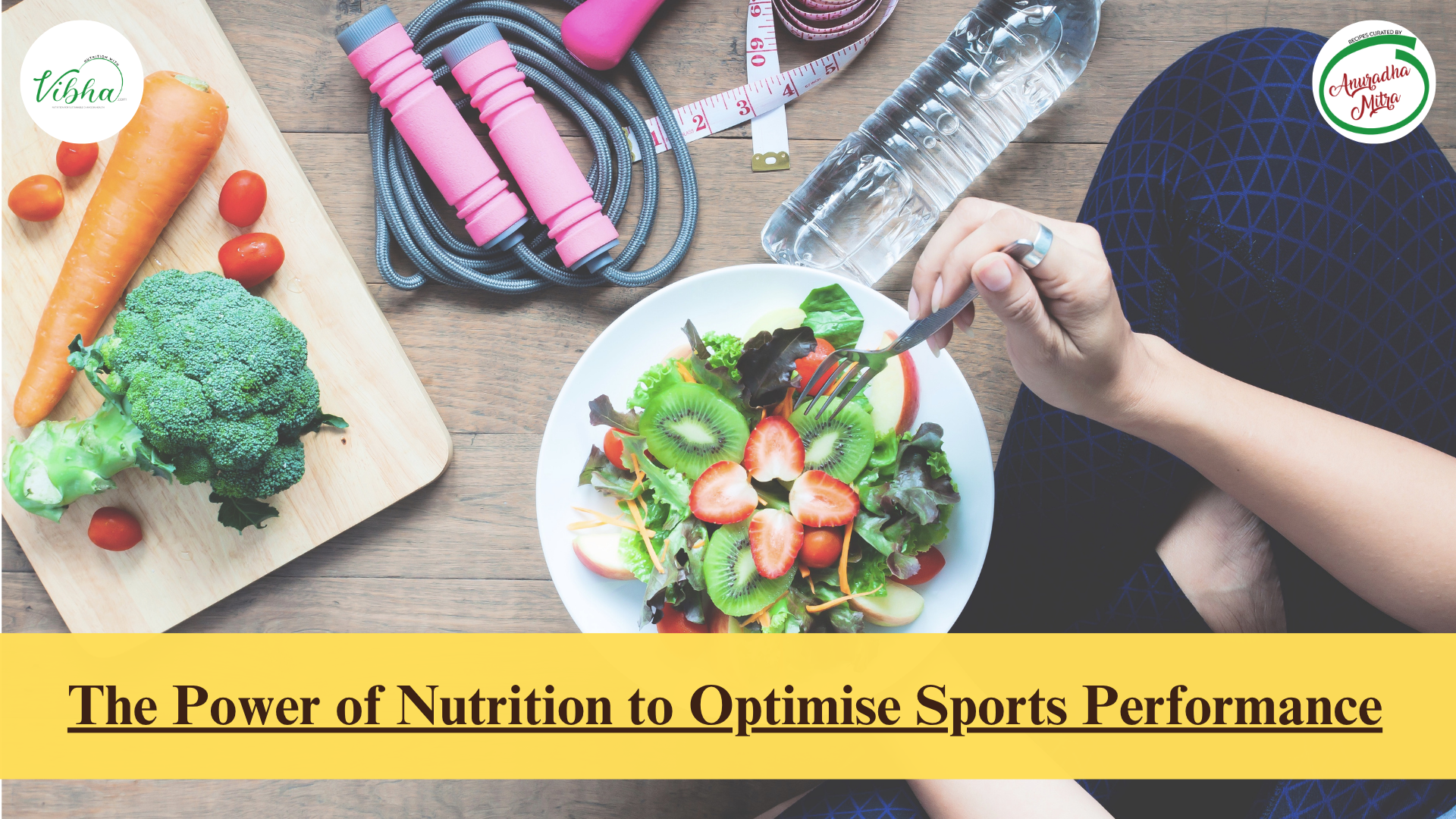The Power of Nutrition to Optimise Sports Performance

Athletic success rests on three pillars: genetics, effort, and nutrition. While talent and relentless training form the visible foundation of an athlete’s journey, nutrition is the silent enabler that determines how effectively the body can perform, adapt, and recover. Genetics may provide the blueprint, and effort builds the structure, but nutrition fuels, repairs, and sustains that structure. Without proper nutrition, even the most dedicated athletes may struggle to reach their full potential.
Different Athletes, Different Needs: Personalised Diet Plans Matter
Athletes are not a homogeneous group. Adolescents, endurance runners, power athletes, and team-sport players all have unique physiological requirements. Even within the same sport, training periods and competition phases demand tailored nutritional strategies. High-intensity training sessions, skill-based practice, and competitive games place different stresses on the body, which means nutrition must align with these specific demands.
A personalized diet plan ensures that each athlete receives the right combination of energy, macronutrients, micronutrients, and hydration strategies for their sport, body composition, and training load. This personalization helps maximize performance, enhance recovery, and reduce injury risk.
Aspects Of Sports Performance
Success in sports depends on multiple facets of physical and mental fitness:
- Agility and Quick Reflexes: Crucial in football, cricket, boxing, and badminton, where second reactions can determine outcomes.
- Muscle Strength and Power: Essential for sprinters, weightlifters, and rugby players to generate explosive movements.
- Stamina and Cardiovascular Endurance: Core for endurance athletes like marathoners, triathletes, and cyclists.
- Coordination and Balance: Important in gymnastics, tennis, and martial arts.
- Flexibility and Mobility: Reduces injury risk and enhances performance in dynamic sports.
- Mental Focus and Recovery: Supports decision-making, concentration, and stress management during intense training or competitions.
Athletes who excel often pair structured training with disciplined lifestyles, including consistent sleep, mental well-being practices, and mindful dietary habits. For instance, Virat Kohli highlights the importance of a disciplined lifestyle, nutrition, and recovery practices as key drivers of peak performance, showing how lifestyle choices amplify training effects.
Nutrition: The Foundation Of Athletic Excellence
Nutrition directly fuels performance, supports adaptation to training, aids recovery, and protects long-term health. It is not just about eating “healthy” but eating strategically according to personal needs, training intensity, and competition demands.
Macronutrients
- Carbohydrates: The primary energy source for high-intensity and endurance sports. Proper intake ensures muscles and the nervous system function optimally, delays fatigue, and sustains performance. Timing carbohydrate intake according to training schedules is crucial, this is where a personalized diet plan makes a real difference.
- Proteins and Amino Acids: Essential for muscle repair, growth, and adaptation. Adequate protein supports recovery, prevents muscle breakdown, and enhances training effectiveness.
- Healthy Fats: Provide sustained energy, support hormone production, and aid absorption of fat-soluble vitamins. Fats are particularly crucial for endurance and overall metabolic health.
Key Micronutrients
Vitamins and minerals, though needed in smaller amounts, are vital for:
- Iron: Oxygen transport and stamina.
- Calcium & Vitamin D: Bone and muscular health.
- Antioxidants (Vitamins C & E, Selenium): Reduce exercise-induced oxidative stress.
- Magnesium, Zinc, B Vitamins: Support energy metabolism, nerve function, and muscle contraction.
Micronutrients support performance, recovery, immunity, and long-term athlete health. Personalized diet plans ensure that athletes meet these micronutrient needs according to their individual physiology and training demands.
Hydration
Water is essential for temperature regulation, nutrient transport, joint lubrication, and muscle contraction. Even mild dehydration can impair performance, slow recovery, and increase injury risk. Hydration strategies should be individualized, based on body size, sweat rate, and intensity of training.
Nutrition During Exercise
Timing of nutrients is as important as the nutrients themselves:
- Pre-Exercise: Carbs provide energy, proteins are important for muscles, and fats sustain longer sessions. A personalized approach ensures the right composition for the specific sport and intensity.
- During Exercise: Carbs maintain energy. Hydration during activity is critical to maintain both physical and mental performance.
- Post-Exercise: Proteins repair muscles, carbs replenish glycogen, and fats aid recovery. Tailoring post-exercise nutrition ensures readiness for the next session.
Supplements: Strategic Support, Not Replacement
While a balanced, nutrient-rich diet should always be the foundation, supplements serve as a bridge to fill nutritional gaps. They complement foods, ensuring athletes meet energy, protein, and micronutrient requirements when diet alone may fall short.
Certain supplements and functional foods can provide additional benefits when carefully selected:
- Sports-specific: Support the physiological demands of endurance, strength, or power sports.
- Dose-specific: Tailored to the athlete’s body weight, training intensity, and competition requirements.
- Time-specific: Consumed at strategic points before, during, or after training/competition to optimize performance and recovery.
However, caution is critical. Supplements may contain substances banned in competitive sports, and improper use can risk an athlete’s career. All supplementation should be planned and monitored under the guidance of a qualified sports nutritionist, ensuring safety, ethical compliance, and effective results.
A personalized supplement strategy, combined with an individualized diet plan, helps athletes maximize performance, recover efficiently, and minimize risks associated with doping.
Bridging The Gap And Unlocking Potential
Many athletes train intensively and prepare for competitions without access to a sports nutritionist. Without professional guidance, they may miss critical nutrients, recovery support, or optimal nutrient timing, which can hamper performance, slow recovery, and increase injury risk.
Professional nutrition support ensures that each athlete receives the right nutrients at the right time, tailored to their sport, training load, body composition, and individual goals. By combining personalized diet plans, strategic hydration, and careful supplementation under expert supervision, athletes can maximize performance, recover efficiently, and safeguard their long-term health.
Nutrition is the silent powerhouse behind every athlete’s success. Alongside genetics and dedicated effort, it determines energy availability, adaptation, recovery, and overall performance. Understanding macronutrients, amino acids, healthy fats, key micronutrients, hydration, timing, and supplementation allows athletes to unlock their full potential and perform at their best.
Take control of your nutrition, listen to your body’s unique needs, and seek guidance from qualified sports nutrition professionals to fuel your training and recovery safely and effectively. For personalized advice, access to premium blogs, or to schedule a private session, visit nutritionwithvibha.com or email us at nutritionwithvibha@gmail.com. Make informed dietary decisions today and elevate every aspect of your athletic journey.
Stay Empowered
Stay Nourished
Stay Blessed




